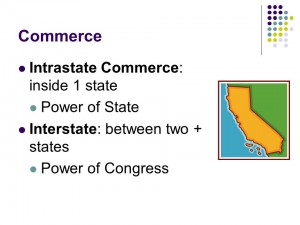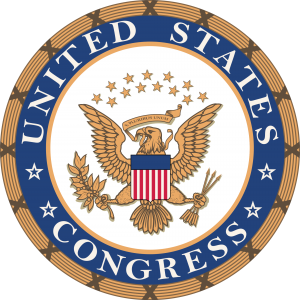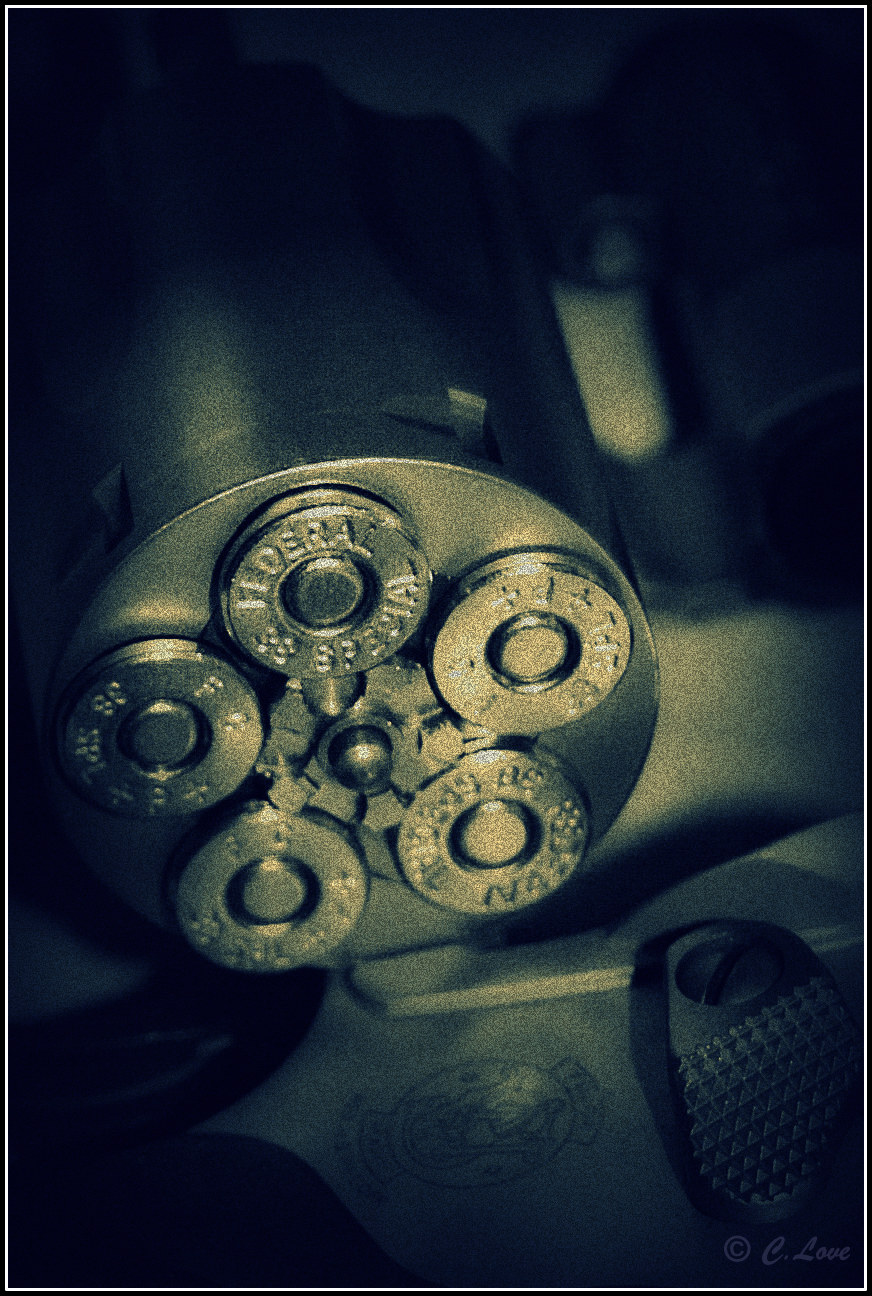Hobbs Act Additional Commerce Element: If The Government Proves Beyond A Reasonable Doubt That A Robber Targeted A Marijuana Dealers Drugs Or Illegal Proceeds, The Government Has Proved Beyond A Reasonable Doubt That Commerce Over Which The United States Has Jurisdiction Was Affected.
The United States Supreme Court
Taylor v United States
No.14-6166
Decided: June 20, 2016
Issue: What does the Government need to prove to satisfy the Hobbs Act’s additional commerce element when a defendant commits a robbery that targets a marijuana dealer’s drugs or drug proceeds?
Holding: The United States Supreme court held that The Hobbs Act makes it a crime for a person to affect commerce, or to attempt to do so, by robbery, 18 U. S. C. 1951(a). The Act defines commerce broadly as interstate commerce and all other commerce over which the United States has jurisdiction. 1951(b)(3).
The Hobbs Act provides in relevant part as follows:
Whoever in any way or degree obstructs, delays, or affects commerce or the movement of any article or commodity in commerce, by robbery or attempts or conspires so to do shall be fined under this title or imprisoned not more than twenty years, or both, 18 U. S. C. 1951(a). The Act then defines the term commerce to mean commerce within the District of Columbia, or any Territory or Possession of the United States; all commerce between any point in a State, Territory, Possession, or the District of Columbia and any point outside thereof; all commerce between points within the same State through any place outside such State; and all other commerce over which the United States has jurisdiction. 1951(b)(3).
Facts:?Petitioner Anthony Taylor was convicted on two counts of Hobbs Act robbery in violation of 1951(a), and one count of using a firearm in furtherance of a crime of violence in violation of 924(c). For his participation in these two home invasions, Taylor was indicted under the Hobbs Act on two counts of affecting commerce or attempting to do so through robbery. His first trial resulted in a hung jury. On retrial, the District Court precluded Taylor from introducing evidence that the drug dealers he targeted might be dealing in only locally grown marijuana. During the second trial, Taylor twice moved for a judgment of acquittal on the ground that the prosecution had failed to meet its burden on the commerce element; the District Court denied those motions, holding that the proof that Taylor attempted to rob drug dealers was sufficient as a matter of law to satisfy that element. The jury found Taylor guilty on both of the Hobbs Act counts and one of the firearms counts.
On appeal, Taylor challenged the sufficiency of the evidence to prove the commerce element of the Hobbs Act, but the Fourth Circuit affirmed and held that because drug dealing in the aggregate necessarily affects interstate commerce, the government was simply required to prove that Taylor depleted or attempted to deplete the assets of such an operation, 754 F. 3d, at 224. The United States Supreme Court granted certiorari regarding the demands of the Hobbs Acts commerce element and affirmed the Fourth Circuit.
Legal Analysis: The United States Supreme Court held in Gonzales v. Raich, 545 U. S. 1(2005) that the Commerce Clause gives Congress authority to regulate the national market for marijuana, including the authority to proscribe the purely intrastate production, possession, and sale of this controlled substance. Because Congress may regulate these intrastate activities based on their aggregate effect on interstate commerce, it follows that Congress may also regulate intrastate drug theft. And since the Hobbs Act criminalizes robberies and attempted robberies that affect any commerce over which the United States has jurisdiction, 1951(b)(3), the prosecution in a Hobbs Act robbery case satisfies the Acts commerce element if it shows that the defendant robbed or attempted to rob a drug dealer of drugs or drug proceeds. By targeting a drug dealer in this way, a robber necessarily affects or attempts to affect commerce over which the United States has jurisdiction.
In this case, petitioner Anthony Taylor was convicted on two Hobbs Act counts based on proof that he attempted to rob marijuana dealers of their drugs and drug money. The United States Supreme Court held that this evidence was sufficient to satisfy the Acts commerce element.
 Hobbs Act
Hobbs Act
The Hobbs Act provides in relevant part as follows: Whoever in any way or degree obstructs, delays, or affects commerce or the movement of any article or commodity in commerce, by robbery or attempts or conspires so to do shall be fined under this title or imprisoned not more than twenty years, or both, 18 U. S. C. 1951(a). The Act then defines the term commerce to mean commerce within the District of Columbia, or any Territory or Possession of the United States; all commerce between any point in a State, Territory, Possession, or the District of Columbia and any point outside thereof; all commerce between points within the same State through any place outside such State; and all other commerce over which the United States has jurisdiction. 1951(b)(3).
The Court held that there are three categories of activity that Congress may regulate under its power (1) the use of channels of interstate commerce, (2) the instrumentalities of interstate commerce, or persons or things in interstate commerce, even though the threat may come only from intrastate activities, and (3) those activities having a substantial relation to interstate commerce, i.e, those activities that substantially affect interstate commerce. In this case, the sale of marijuana is unquestionably of economic activity.
In Raich, the Court addressed Congress’ authority to regulate the marijuana market. The Court reaffirmed Congress power to regulate purely local activities that are part of an economic class of activities that have a substantial effect on interstate commerce, 545 U.S., at 17. The production, possession, and distribution of controlled substances constitute a class of activities that in the aggregate substantially affect interstate commerce, and therefore, the Court held, Congress possesses the authority to regulate (and to criminalize) the production, possession, and distribution of controlled substances even when those activities occur entirely within the boundaries of a single State. Any other outcome, was warned, would leave a gaping enforcement hole in Congress’ regulatory scheme. Id., at 22.
The Hobbs Act contains such an element namely, the conduct criminalized must affect or attempt to affect commerce in some way, 18 U.S.C. 1951. Therefore, Taylor reasons, the prosecution must prove beyond a reasonable doubt either (1) that the particular drugs in question originated or were destined for sale out of State or (2) that the particular drug dealer targeted in the robbery operated an interstate business. See Brief for Petitioner 25 27; Reply Brief 8. The Second and Seventh Circuits have adopted this same argument,?United States v. Needham, 604 F. 3d 673, 681 (CA2 2010); United States v. Peterson, 236 F. 3d 848, 855 (CA7 2001). This argument is flawed. It confuses the standard of proof with the meaning of the element that must be proved. There is no question that the Government in a Hobbs Act prosecution must prove beyond a reasonable doubt that the defendant engaged in conduct that satisfies the Acts commerce element, but the meaning of that element is a question of law. And, as noted, Raich established that the purely intrastate production and sale of marijuana is commerce over which the Federal Government has jurisdiction.
Therefore, if the Government proves beyond a reasonable doubt that a robber targeted a marijuana dealers drugs or illegal proceeds, the Government has proved beyond a reasonable doubt that commerce over which the United States has jurisdiction was affected.The only way to escape that conclusion would be to hold that the Hobbs Act does not exercise the full measure of Congress’ commerce power. But we reached the opposite conclusion more than 50 years ago, see Stirone, 361 U. S., at 215, and it is not easy to see how the expansive language of the Act could be interpreted in any other way.
 Commerce Element
Commerce Element
The Act’s commerce element ensures that applications of the Act do not exceed Congress’ authority. But in a case like this one, where the target of a robbery is a drug dealer, proof that the defendants conduct in and of itself affected or threatened commerce is not needed. All that is needed is proof that the defendants conduct fell within a category of conduct that, in the aggregate, had the requisite effect.
In order to obtain a conviction under the Hobbs Act for the robbery or attempted robbery of a drug dealer, the Government need not show that the drugs that a defendant stole or attempted to steal either traveled or were destined for transport across state lines. Rather, to satisfy the Act’s commerce element, it is enough that a defendant knowingly stole or attempted to steal drugs or drug proceeds, for, as a matter of law, the market for illegal drugs is commerce over which the United States has jurisdiction. The Court held that the Government met its burden by introducing evidence that Taylor’s gang intentionally targeted drug dealers to obtain drugs and drug proceeds and affirmed the decision of Fourth Circuit.
